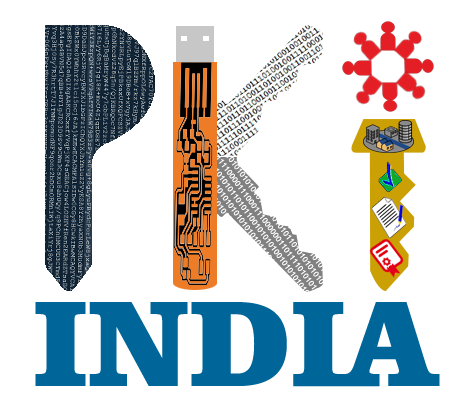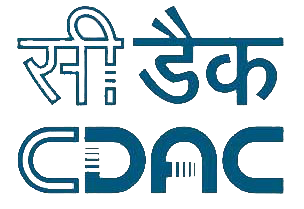
About International Conference
The International Conference on Public Key Infrastructure and its Applications (PKIA 2021) will be a premium venue for bringing together all stakeholders of a Public Key Infrastructure Ecosystem. The objective is to provide a platform for presenting novel ideas from academia and industry on traditional and emerging topics and new paradigms in the areas of PKI, with a clear connection to real-world problems, systems or applications.

About C-DAC
Center for Development of Advanced Computing (C-DAC) is the premier R&D organization of the Department of Electronics and Information Technology (DietY), Ministry of Communication and Information Technology (MCIT) for carrying out R&D in IT, Electronics and associated areas. C-DAC has today emerged as premier R&D organization in IT&E (Information Technlogies and Electronics) in the country working on strengthening national technological capabilities in the context of global developments. More information can be found at: http://www.cdac.in

About CCA
The Controller of Certifying Authorities (CCA) has been appointed by the Central Government under section 17 of the Act for the purpose of IT Act. The office of the CCA aims at promoting the growth of e-Commerce and e-Governance through the wide use of digital signatures. The CAs issues Digital Signature Certificates to the subscribers. The CCA certifies the public keys of CAs using its own private key, which enables user in the cyberspace to verify that a given certificate is issued by a licenced CA. For this purpose it operates, the Root Certifying Authority of India (RCAI). More information can be found at: http://cca.gov.in

Call for Papers
Applications of PKI as a technology has grown by leaps and bounds in the recent years and is on the verge of becoming synonymous with trust in electronic transactions all over the world.
The world of PKI has evolved as a robust and reliable system owing to the strong ecosystem - backed by the development in Cryptography, Protocols, Standards, Policy, Laws, Software libraries and hardware components.
The objective is to provide a platform for presenting novel ideas from academia and industry on traditional and emerging topics and new paradigms in the areas of PKI, with a clear connection to real-world problems, systems or applications.
The conference therefore seeks submissions presenting innovative research and current developments in the areas of Public Key Infrastructures, Digital Certificates, Digital Signatures, Key Management, One-Time Signatures, Certificate-less secure communication, Time Stamping, PKI based Authentication etc. Submissions may focus on Modelling, Design, Analysis (incl. security proofs and attacks), Development (e.g. implementations), Deployment (e.g. system integration), and Maintenance (e.g. performance measurements, usability studies) of algorithms/protocols/standards/implementations/technologies /devices/systems standing in relation with public key cryptography. Some topics of interest include but not limited to:
- Advanced Cryptographic Methods for Digital Signing
- Light Weight Cryptography and PKI
- Security issues and Challenges in Crypto Tokens
- PKI and FIDO
- Policy and Legal support systems for PKI
- Key Management Implementation and Issues
- Critical Infrastructure Protection using PKI
- Public Key Infrastructure Protection
- Certificate Validation
- Implementation of PKI Applications
- Standard Libraries for PKI Applications
- Standard Plug-ins for PKI enablement
- PKI of IoT Security
- Usability in PKI for ease of issuance of tokens
- Human factors in PKI security
- Dynamic Digital / Electronic Signatures
- PKI for Securing Mobile APPs
- Biometric and PKI enabled applications
- PKI for Identity Management
- PKI in e-Governance, e-Banking
- Advances in Public Key Cryptography
- Trust Models, Trust List etc
Visit the International Conference CFP page HERE
Papers should be a maximum of 6 pages in the IEEE conference proceedings format available HERE
Please submit your technical papers by 30th October 2021, via EasyChair for PKIA 2021 HERE
Program
- Registration & Networking
- Inaugural Session
- Keynote Address
- Paper Presentation
- Industry and Academia Talk
- Panel Discussion
- Valedictory and Conclusion
Venue
Online: Link will shared here.
Offline:
Silver Oak Hall
India Habitat Centre
Lodhi Road Near Airforce Bal Bharati School
Lodhi Estate
New Delhi - 110003
Organizers



Contact Us
Centre for Development of Advanced Computing,
#68, Electronic City, Bangalore - 560100
Karnataka(India).
Phones: +91-8028523300
Fax: +91-8028522590
Email: pki@cdac.in
Web: www.pkiindia.in